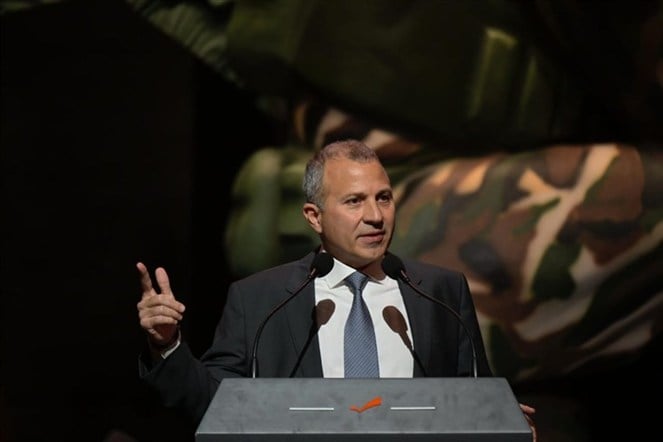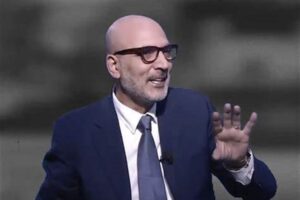Following the meeting of the Free Patriotic Movement’s (FPM) political council, party president MP Gebran Bassil held a press conference in which he revealed what he described as a conspiracy to abolish the diaspora’s voting right from abroad calling it a scandal, a crime, and a betrayal. Bassil warned that a deal was being orchestrated to revoke this fundamental right, stressing the need to alert the diaspora, block the scheme, and expose those behind it to prevent future attempts. Defense of the Diaspora’s Right Addressing Lebanese communities worldwide, Bassil reaffirmed that the right to vote from abroad is a national and strategic achievement for all Lebanese, and especially for Christians, as it is vital to restoring balanced parliamentary representation. He recalled that the amendment of the electoral law had corrected Christian representation and that the FPM’s proposal granted the diaspora the right to vote abroad either for diaspora MPs or for candidates in domestic districts through two separate ballot boxes. Historical Background and Political Hypocrisy Bassil noted that Muslim parliamentary blocs were initially unenthusiastic but ultimately accepted the arrangement, while Christian blocs enthusiastically supported it and even overstated their role in achieving this national milestone. He accused the Lebanese Forces (LF) of duplicity, recalling that recordings exist of LF MPs particularly Georges Adwan supporting the law despite later denials by the party leader. He compared this behavior to previous betrayals, from the Taif Agreement to the Maarab Agreement, warning that history is repeating itself through internal coups and the erosion of Christian rights, as once happened with the Orthodox Law. Positions of Other Blocs According to Bassil, the Shiite duo does not seek to cancel diaspora MPs outright but does not object to it either, seeing little benefit given their current circumstances abroad. He stressed that, for the FPM, this achievement is historic and must not be lost, neither for the diaspora, nor for Christians, nor for the Lebanese people as a whole. He added that representation should not remain limited to six MPs, but rather be expanded to 12 or even 18, in line with the movement’s original objective. Bassil noted that once the six diaspora MPs are elected, the value and positive impact of this representation both for the diaspora and for Lebanon will become evident, particularly since the law also allows diaspora voters to cast their ballots in Lebanon if they wish. In contrast, some Sunni blocs, driven by narrow electoral interests, aim to scrap the six diaspora MPs in order to secure more domestic seats boycotting sessions they once condemned others for boycotting. Bassil accused certain Christian parties of cooperating in this plot for personal gain, believing that financial backing and external promises will allow them to import voters by plane to Lebanon. He described this as another episode in the recurring collusion against the FPM from October 13, 1990, to the 2005 alliances, the events of October 17, 2019, the Maarab Agreement, Tayouneh and continuing to the present. Proposed Solutions and Legal Concerns To ensure equality and prevent legal challenges, Bassil proposed two diaspora ballot boxes through pre-registration, mirroring the system for residents in Lebanon. He revealed that his suspicions were confirmed after last Tuesday’s disrupted parliamentary session, which he said was intentionally sabotaged through “consent or collusion.” He warned that the government, composed of nearly all parliamentary blocs except the FPM, secretly aligns to avoid diaspora elections. The latest maneuver, he said, involves annulling Article 112 instead of providing both voting options, risking the removal of the entire diaspora chapter and the magnetic voting card, two of the law’s most important reforms. A Historic Right Under Threat Bassil explained that diaspora voting rights were secured in three stages under the 2017 law: 1.2018 – First participation of the diaspora in national elections. 2.Second stage – Creation of District 16 with six MPs representing the diaspora. 3.Third stage – Granting the diaspora the right to run for office abroad, with six global seats representing the six continents. He emphasized that this reform reflects Lebanon’s unique demographic reality, a country with one of the world’s highest ratios of citizens abroad to residents, and strengthens Lebanon’s international ties. Diaspora MPs, he said, play a crucial role in legislating for expatriates, boosting participation abroad (currently under 10%), and ensuring fair geographic representation. He asked pointedly: “Do millions of Lebanese abroad not deserve six out of 128 MPs—just 4.5%—when more than fifteen other nations have similar representation?” Warning to the Government and the Diaspora Bassil denounced the government’s claim that it cannot implement the diaspora chapter, noting that a detailed report signed by 16 officials provides the roadmap for execution. Instead, authorities are pushing to abolish the magnetic card instead of enforcing it or introducing mega-centers. Directing his message to the diaspora, Bassil warned: “They are conspiring to cancel your rights while telling you to return to Lebanon if you wish to vote. This is a strategic loss that cannot be replaced.” He urged the diaspora not to be misled by false claims, stressing that they are being manipulated into thinking they are isolated, when in fact, they are entitled to all options to vote abroad or domestically, and to choose MPs in either category. He compared the situation to the Orthodox law, warning that once lost, such rights cannot be reclaimed. Bassil announced that memoranda would be sent to all concerned authorities, including church leaders, to alert them to the danger of silence just as silence once surrounded the issue of nationality restoration. Final Remarks Bassil accused government parties of public disagreements but private coordination, dividing appointments and benefits while ignoring national priorities. With only two weeks left for diaspora registration, he warned that the government’s continued delay may lead to de facto cancellation of diaspora voting before formal ratification in parliament. He concluded by condemning the government’s total dysfunction, no plans for electricity, water, waste, or corruption reform and its failure to address the weapons issue. “Instead of a Lebanese initiative on defense, we wait for foreign instructions from America, Egypt, and others while pretending to defend sovereignty.” Bassil closed by affirming that the Free Patriotic Movement remains patriotic, free, and independent, standing firm in defense of Lebanon’s rights and the diaspora’s representation.
Bassil Exposes the Plot to Cancel the Diaspora’s Voting Right: “A Crime and a Betrayal”




